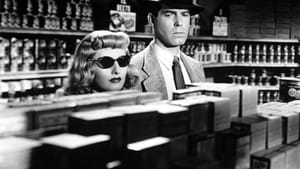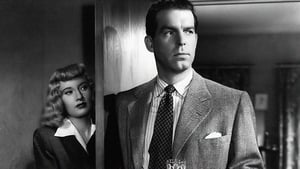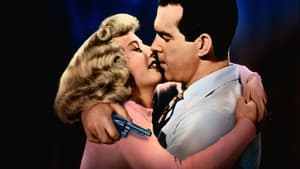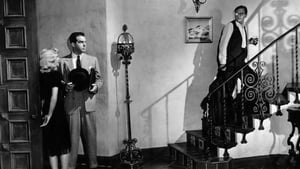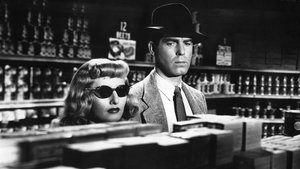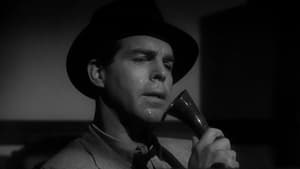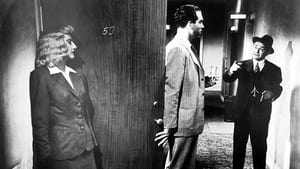Contact: info@alwanfilm.com
Video Sources 0 Views
- Watch trailer
- Double Indemnity

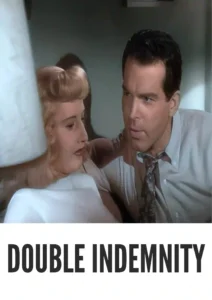
Synopsis
Table of Contents
ToggleReview: Double Indemnity 1944 Colorized – A Timeless Masterpiece of Film Noir

Introduction
Double Indemnity, released in 1944, stands as one of the greatest achievements in film noir, directed by the legendary Billy Wilder. Renowned for its dark atmosphere, morally ambiguous characters, and razor-sharp dialogue, this classic crime thriller continues to captivate audiences with its gripping narrative and haunting visuals. In this review, we’ll delve into the sinister world of Double Indemnity and explore its enduring legacy in the annals of cinema.
Check The Full Colorized Movies List
Check Our Colorized Movies Trailer Channel
Understanding Double Indemnity 1944 Colorized: Director, Cast, and Genre
Directed by Billy Wilder, Double Indemnity features a stellar cast led by Fred MacMurray, Barbara Stanwyck, and Edward G. Robinson. The film belongs to the film noir genre, known for its shadowy visuals, morally complex characters, and bleak outlook on human nature.
Exploring the World of Double Indemnity 1944 Colorized: Plot and Characters
Double Indemnity follows the twisted tale of insurance salesman Walter Neff, who becomes ensnared in a deadly scheme orchestrated by femme fatale Phyllis Dietrichson. As their plan to commit the perfect murder unfolds, Walter finds himself drawn deeper into a web of deceit, betrayal, and moral corruption. Against the backdrop of a sun-drenched Los Angeles, the film explores themes of greed, lust, and the darker aspects of the human psyche.
The Art of Film Colorization
While Double Indemnity was originally filmed in black and white, its early colorized version adds a new layer of depth to its atmospheric visuals. The colorization process enhances the film’s moody atmosphere and captures the nuances of its shadowy characters with striking clarity.
Early Colored Films: A Brief History
The history of early colored films is marked by innovation and experimentation as filmmakers sought to enhance the visual appeal of their movies. From hand-tinted frames to pioneering technicolor processes, the evolution of colorization techniques transformed the cinematic landscape, offering audiences a new way to experience the darkness and intensity of film noir.
Double Indemnity (1944) and Its Early Colored Version
The decision to release Double Indemnity in a colorized format was made with the intention of immersing audiences in the film’s atmospheric cinematography and enhancing its visual impact. While some purists may prefer the original black and white version, the early colorized edition of Double Indemnity adds a new layer of depth to its moody atmosphere and captures the moral ambiguity of its characters with breathtaking clarity.
The Debate Over Film Colorization
The debate over film colorization continues to divide audiences and industry professionals alike. While some argue that colorization breathes new life into classic films and makes them more accessible to modern audiences, others maintain that it compromises the artistic integrity of the original work. As technology advances and filmmaking techniques evolve, the debate over colorization remains a topic of ongoing discussion within the film community.
Examining Double Indemnity (1944) as an Early Colored Film
Viewing Double Indemnity in its early colorized iteration offers audiences a fresh perspective on its moody atmosphere and morally complex characters. The colorization process enhances the film’s visual impact and captures the tension and suspense of its noirish storyline with stunning clarity. As viewers are drawn into the dark and twisted world of Walter Neff and Phyllis Dietrichson, they are treated to a visual feast that immerses them in the sinister underbelly of 1940s Los Angeles.
Influence and Legacy: Double Indemnity 1944 Colorized’s Impact on Cinema
Double Indemnity is widely regarded as a masterpiece of the film noir genre that continues to influence filmmakers and inspire new generations of cinephiles. Its gripping narrative, morally ambiguous characters, and moody atmosphere have left an indelible mark on cinema, shaping the way crime thrillers are made and appreciated to this day.
Director’s Cinematic Legacy: Beyond Double Indemnity 1944 Colorized
Billy Wilder’s directorial legacy extends far beyond Double Indemnity, encompassing a diverse body of work that includes acclaimed films such as Sunset Boulevard and Some Like It Hot. As one of the most celebrated filmmakers of his generation, Wilder was known for his ability to craft compelling narratives that explored the darker aspects of the human condition with depth and nuance. Double Indemnity stands as a testament to his talent and creativity, solidifying his reputation as one of the great auteurs of classic Hollywood cinema.
Themes Explored in Double Indemnity 1944 Colorized
At its core, Double Indemnity explores themes of greed, lust, and moral corruption in the shadowy world of film noir. Through its morally ambiguous characters and moody atmosphere, the film offers a chilling portrayal of the human condition, challenging viewers to confront their own beliefs about right and wrong as they navigate the treacherous waters of love and betrayal.
Reception and Controversy Surrounding Double Indemnity 1944 Colorized
Upon its release, Double Indemnity received widespread critical acclaim for its gripping narrative, sharp dialogue, and powerhouse performances. While the decision to release the film in a colorized format sparked debate among purists, its enduring popularity has cemented its status as a timeless classic of the film noir genre.
Where to Watch Double Indemnity 1944 Colorized Online
For those eager to experience Double Indemnity for themselves, the film is readily available on popular streaming platforms such as Amazon Prime Video, Google Play Movies, and iTunes. Whether viewed in its original black and white format or its early colorized iteration, Double Indemnity offers a cinematic experience that is both gripping and visually stunning.
FAQs About Double Indemnity 1944 Colorized
1. Is Double Indemnity based on a true story?
No, Double Indemnity is a fictional film that explores the dark and twisted world of film noir through the eyes of its morally ambiguous characters. While the film’s storyline may draw inspiration from real-life events, its characters and plot are works of fiction.
2. Who starred in Double Indemnity?
Double Indemnity stars Fred MacMurray in the role of Walter Neff, a morally conflicted insurance salesman who becomes embroiled in a deadly scheme orchestrated by femme fatale Phyllis Dietrichson, played by Barbara Stanwyck. Edward G. Robinson delivers a memorable performance as Barton Keyes, Neff’s astute and relentless boss.
3. What is the central message of Double Indemnity?
At its core, Double Indemnity explores the consequences of greed, lust, and moral corruption in the shadowy world of film noir. Through its morally ambiguous characters and moody atmosphere, the film offers a chilling portrayal of the human condition, challenging viewers to confront their own beliefs about right and wrong as they navigate the treacherous waters of love and betrayal.
4. Why was Double Indemnity released in a colorized format?
The decision to release Double Indemnity in a colorized format was made with the intention of immersing audiences in the film’s atmospheric cinematography and enhancing its visual impact. While some purists may prefer the original black and white version, the early colorized edition of Double Indemnity adds a new layer of depth to its moody atmosphere and captures the moral ambiguity of its characters with breathtaking clarity.
5. What is the legacy of Double Indemnity?
Double Indemnity is widely regarded as a masterpiece of the film noir genre that continues to influence filmmakers and inspire new generations of cinephiles. Its gripping narrative, morally ambiguous characters, and moody atmosphere have left an indelible mark on cinema, shaping the way crime thrillers are made and appreciated to this day.
6. Are there any sequels or remakes of Double Indemnity?
No, there have been no official sequels or remakes of Double Indemnity. However, the film’s enduring popularity has inspired countless reinterpretations and homages in various media. Nonetheless, none have captured the gripping narrative and moody atmosphere of the original 1944 classic.
7. Where can I watch Double Indemnity online?
For those eager to experience Double Indemnity for themselves, the film is readily available on popular streaming platforms such as Amazon Prime Video, Google Play Movies, and iTunes. Whether viewed in its original black and white format or its early colorized iteration, Double Indemnity offers a cinematic experience that is both gripping and visually stunning.
Conclusion
In conclusion, Double Indemnity (1944) stands as a timeless masterpiece of the film noir genre that continues to captivate audiences with its gripping narrative, morally ambiguous characters, and haunting visuals. Whether viewed in its original black and white format or its early colorized iteration, Billy Wilder’s insightful direction and the powerhouse performances of the cast offer a cinematic experience that is both thrilling and visually stunning.
As viewers are drawn into the dark and twisted world of Walter Neff and Phyllis Dietrichson, they are treated to a visceral journey that challenges their beliefs about right and wrong and leaves a lasting impact on their understanding of the human condition. Double Indemnity remains a timeless classic that continues to enthrall and inspire audiences around the world.
